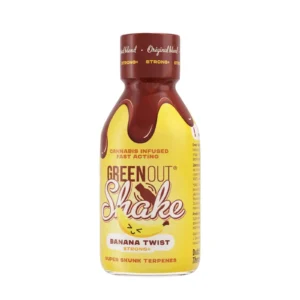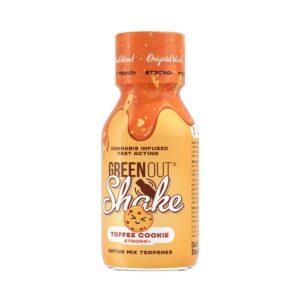With the growing popularity of cannabis, both for recreational and medical purposes, more and more people are wondering about the safety of combining cannabinoids such as CBD (cannabidiol) and THC (tetrahydrocannabinol) with antidepressants.
Depression affects millions of people worldwide, and antidepressants such as selective serotonin reuptake inhibitors (SSRIs) are commonly used to treat it. However, interactions between cannabis and these drugs can affect their effectiveness and safety.
In this article, we will discuss in detail the mechanisms of action, potential interactions, scientific studies, expert opinions, risks and recommendations for combining cannabis with antidepressants to help you make informed health decisions.
Mechanism of Action: How Antidepressants and Con Ascending Work
Antidepressants
Antidepressants such as SSRIs (e.g., sertraline, escitalopram), SNRIs (e.g., duloxetine) or tricyclic antidepressants work by regulating levels of neurotransmitters in the brain, such as serotonin, norepinephrine and dopamine. Serotonin plays a key role in regulating mood, sleep and appetite, and its deficiency is often associated with symptoms of depression. These drugs increase the availability of these neurotransmitters at synapses, which helps alleviate depressive symptoms such as sadness, fatigue and lack of motivation. The effects of antidepressants usually appear after several weeks of regular use, and their effectiveness is best documented for moderate to severe depression.
CBD
Cannabidiol (CBD) is a non-psychoactive chemical compound found in hemp that affects the endocannabinoid system (ECS). The ECS regulates many bodily functions, such as mood, pain, sleep and immune response. CBD affects CB1 and CB2 receptors, as well as other receptor systems such as serotonin receptors, which may contribute to its potential anti-anxiety and antidepressant properties. Unlike THC, CBD does not have a "high" effect and is generally considered safe, although it can cause mild side effects such as dry mouth and drowsiness.
Marijuana (THC)
Tetrahydrocannabinol (THC) is the main psychoactive ingredient in marijuana, responsible for inducing euphoric effects and altering perception. THC works by binding to CB1 cannabinoid receptors in the brain, which activates the reward system and affects dopamine production. This can lead to feelings of relaxation and euphoria, but also to side effects such as anxiety, paranoia and short-term memory impairment. Marijuana is used both recreationally and medically, such as in the treatment of chronic pain.
Potential interactions between cannabis and antidepressants
Pharmacokinetic interactions
CBD and THC can affect the metabolism of antidepressants by inhibiting cytochrome P450 enzymes, particularly CYP2C19 and CYP1A2, which are responsible for metabolizing many drugs such as sertraline, escitalopram and citalopram. A 2021 study found that CBD significantly affects the metabolism of citalopram, to a lesser extent sertraline, fluoxetine and mirtazapine, which can lead to higher concentrations of these drugs in the body. Higher concentrations of the drug can increase the risk of side effects, such as nausea, drowsiness or even toxicity. Smoking marijuana, on the other hand, can speed up the metabolism of some drugs via the CYP1A2 enzyme, which can reduce their effectiveness.
Pharmacodynamic interactions
Cannabinoids can affect serotonergic transmission, which may interact with the mechanism of action of antidepressants. For example, CBD can increase levels of anandamide, an endocannabinoid associated with pain and mood regulation, potentially enhancing or interfering with the effects of antidepressants. THC, on the other hand, can alter the activity of serotonin 5-HT2A and 5-HT1A receptors, which can lead to unpredictable effects, such as increased anxiety or altered drug efficacy.
What does the scientific research say?
Research on interactions between cannabis and antidepressants is limited, but provides important clues. A 2021 study published in Journal of Personalized Medicine showed that THC and CBD increase escitalopram and sertraline concentrations in adolescents, prolonging their half-life and increasing maximum body concentration (C_MAX) by approximately 25-26% and area under the curve (AUC) by 33-35%). Analysis of data from the FDA Adverse Event Reporting System (FAERS) showed that the combination of SSRIs and cannabinoids was associated with a higher risk of adverse reactions, such as:
| Side effects | Increase in risk (multiples) |
|---|---|
| Cough | 4,97 |
| Diarrhea | 3,33 |
| Fatigue | 3,29 |
| Dizziness | 2,87 |
| Influenza | 2,54 |
On the other hand, the 2021 study in Frontiers in Psychiatry showed that medical marijuana can significantly reduce depressive symptoms in some patients, although the results were based on self-report and may have been subject to a placebo effect. Other sources indicate that marijuana may alleviate some of the side effects of antidepressants, such as nausea or lack of appetite, but may also exacerbate anxiety in some people.
Expert opinions
Experts such as pharmacologists and psychiatrists stress the need for caution when combining cannabis with antidepressants. Dr. Daniele Piomelli of the University of California points out that the variability of THC and CBD content in hemp products makes it difficult to predict interactions. Doctors recommend that patients report their cannabis use, as this may require adjusting the dose of the antidepressant or monitoring for side effects. For older classes of drugs, such as tricyclic antidepressants, the risk of interactions is higher than for newer drugs such as SSRIs).
Risks and side effects
Combining cannabis with antidepressants carries the risk of a number of side effects, including:
- Increased drug concentration: Higher levels of antidepressants in the body can lead to increased side effects, such as drowsiness, nausea, dizziness and, in rare cases, serotonin syndrome.
- Reduced effectiveness: In some cases, especially when smoking marijuana, the metabolism of drugs can be accelerated, reducing their effectiveness.
- Side effects of cannabis: CBD can cause dry mouth, drowsiness or diarrhea, while THC can cause anxiety, paranoia or memory impairment.
- Individual differences: Reactions to combinations of these substances vary depending on the person, the dose and the type of drug.
The table below summarizes the potential side effects:
| Substance | Potential side effects |
|---|---|
| CBD | Dry mouth, drowsiness, diarrhea |
| THC | Anxiety, paranoia, memory disorders |
| Antidepressants + Cannabis | Increased drowsiness, dizziness, diarrhea, coughing |
Recommendations for patients
To minimize the risks associated with combining cannabis and antidepressants, the following recommendations should be followed:
- Consultation with a doctor: Always tell your doctor if you are using CBD or marijuana so that he or she can assess the risk of interactions and adjust treatment.
- Monitoring of symptoms: Watch for any new or worsened symptoms, such as fatigue, dizziness or mood changes, and report them to your doctor.
- Avoiding self-medication: Do not substitute antidepressants for cannabis without medical consultation, as this can lead to worsening of depression symptoms.
- Selection of quality products: If you use CBD, choose lab-tested products to ensure adequate cannabinoid content and no contaminants....
Can I take CBD if I am on antidepressants?
CBD can affect the metabolism of antidepressants, especially citalopram, which can increase the risk of side effects. Consult your doctor before starting CBD to assess safety and adjust the dose of the drug.
Is it safe to smoke marijuana when I am taking antidepressants?
Smoking marijuana can affect the metabolism of antidepressants, potentially reducing their effectiveness or exacerbating side effects such as anxiety. Informing your doctor about your marijuana use is crucial for safe treatment.
What are the potential interactions between cannabis and antidepressants?
Cannabis can inhibit drug-metabolizing enzymes such as CYP2C19, leading to increased concentrations of antidepressants in the body. They can also affect serotonergic transmission, which can alter the effectiveness or side effect profile of drugs.
Can cannabis help treat depression?
Some studies suggest that CBD and cannabis can alleviate symptoms of depression and anxiety, but the evidence is limited and based mainly on patient self-report. Cannabis should not replace standard medical treatment without consulting a doctor.
Should I tell my doctor that I use cannabis with antidepressants?
Yes, informing your doctor about your cannabis use is essential so that he or she can monitor potential interactions, adjust the dose of the drug and ensure the safety of the therapy.
- Antidepressants: Overview and How They Work
- Cannabidiol (CBD): What We Know and What We Don't
- CBD Oil for Pain Management: Effects, Benefits, and Uses
- Cannabis and Antidepressants: Potential Interactions
- Impact of Marijuana on Antidepressant Treatment in Adolescents
- Antidepressant and Anxiolytic Effects of Medicinal Cannabis
- Marijuana and Antidepressants: Safety and Interactions
- Cannabis and Antidepressants: Risks and Considerations
- Cannabis Interactions with Antidepressants
This article is for informational purposes only and does not constitute medical advice. Always consult your doctor before making changes in treatment or using new substances.








